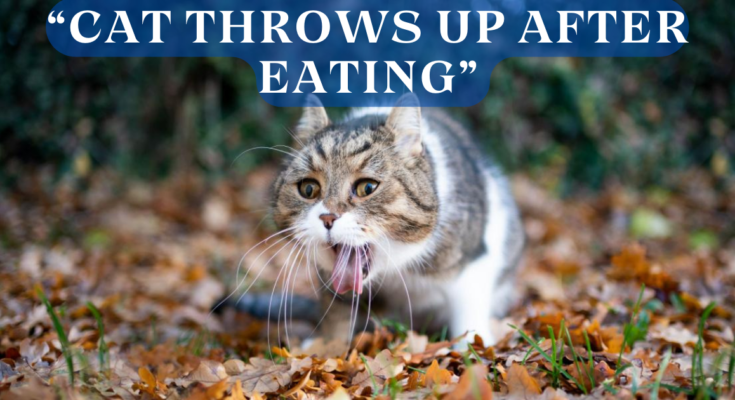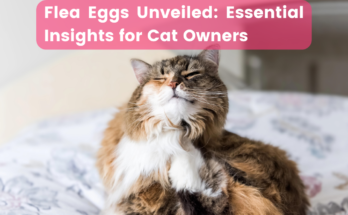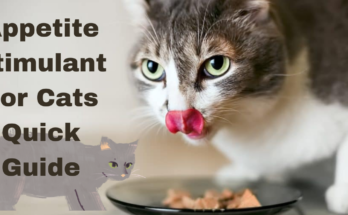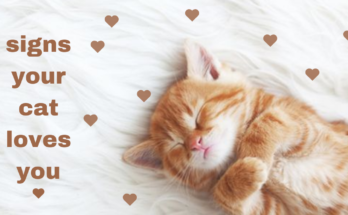Your precious animal companion indulges too much in the kibble you fed her, eager for dinner. After a few minutes, you can hear her retching next to her plate. What may be causing your cat’s vomiting? And why would it always occur at mealtime? There are two kinds of vomiting. Did you know that? Both acute and long-term. Acute vomiting lasts just a day or two and is an abrupt episode most often caused by eating excess food too quickly. Cats with chronic vomiting have 1-2 episodes of vomiting each day, along with other symptoms such as discomfort, sadness, and weight loss. Cat throws up after eating, as discussed below :
Reasons Why Cat Throws Up After Eating
Consumed too much food
When it comes time for feeding, cats might become quite eager and eat indiscriminately. It may cause nausea shortly after eating. You know, a cat’s stomach can only hold so much.
Some individuals decide to feed their cats more often and in smaller volumes throughout the day. Some like to keep food in the dish at all times so the cat may consume as much of it as they want, whenever they want. If your pet has a chunk, consider using an automated feeder that delivers food in smaller portions on a schedule.
Eaten or Spent Too Quickly
If you see that large patch of vomit next to their meal dish, you know? It also has fluids, but it still seems to be food. It indicates that your cat is eating too quickly.
While one cat consistently consumes the meals of other cats, it may lead to erratic feeding patterns and food binges, which is problematic in families with many cats. Here’s another scenario where an automated feeder might help with a cat’s need to hurry to get food. If the cats feel secure enough to consume food at leisure, consider feeding them in different regions.
Hairballs:
Your cats probably drink too quickly if you see a little pool of clear liquid next to the dish. To help with this, always have a dish of water on hand so your cats may take their time drinking.
Every two weeks, your kitten should expel a hairball resembling cat vomit. As a regular part of their taking care of yourself regimen, cats tend to ingest hair; occasionally, they may even develop hairballs.
Your veterinarian may recommend treatments like diets to decrease hair development or grooming to lessen the amount of hair your cat swallows if it vomits hairballs regularly.
Moreover, you may try a hairball-reducing meal such as Royal Canine Complete Cat Care hairball formula or a hairball-passing digestive system therapy such as Pet Naturals Hairball supplements in chicken taste.
Hard-to-digest food items
Being omnivores by nature, cats devour any insects, birds, or rodents they find, which implies that they are also consuming the animal’s bones, fat, and meat. It may surprise you that bones and organs are common ingredients in cat food.
Although these by-products are very nutritious for a cat’s diet, they may sometimes be difficult to digest. If vomiting and diarrhea occur, it may be time to change your diet.
Additionally, search for single-protein, preservative-free goodies like Cat Man Doo freeze-dried chicken treats. And such things drive cats insane.
Ingredients in Food
While most of us like providing our cats with premium food and treats, we seldom read the ingredient list. Your cat can respond to the emulsifiers, colors, surfactants, additives, and preservatives in your treats if they are in their diet.
When purchasing food for your cat, examining the label to determine what they consume is essential.
Ordinary label for dry food: even if this cuisine is excellent and well-reviewed, it still contains many extra chemicals and preservatives. Typical labels for moist food marketed like chicken and turkey, this wet meal contains many different nutrients and preservatives. It is false to believe that any of these components is Healthy or Harmful for your cat. One of the best things you can do is experiment with various meals until you discover one that works well with your cat to educate yourself on what works for them.
Grass, what about it?
It’s no longer thought that cats that eat grass have upset tummies, according to a scientific study. Vomiting may sometimes happen after consuming grass.
Studies show that cats that consume grass can eliminate intestinal parasites by strengthening their digestive system muscles. Cats still engage in this natural activity nowadays.
Stated differently, don’t stress about it. Consider giving them some grass to munch on.
Once the greenery in the container becomes lush and bushy, let your cats nibble away at it. Toss many cat seeds of grass into a container filled with dirt. Before the grass gets very large, those rascals could even attempt to eat it.
Why Do Cats Throw Up?
Even under healthy conditions, cats may vomit. Following a meal, your cat may consume excess or excessively quickly if they puke up. Potential explanations for their behavior include changing food or ingesting anything foreign, such as an elastic strap or thread.
Another possibility is hairballs. Cats with long hair or those that clean themselves often may end up with wads of fur stuck in their stomachs.
It’s acceptable for your cat to pass a hairball once or twice weekly. For your cat, however, passing hairballs shouldn’t hurt to prevent clogs in their intestines. Providing your cat with over-the-counter vitamins or brushing their hair might simplify things.
Cat vomiting may also be a symptom of the following more severe conditions:
- foreign items throughout their digestive system
- dietary allergies
- toxic
- Eatable Parasites
- Inflammatory bowel illness
- High blood sugar Hyperthyroidism
- Illness in the kidneys
- Cancerous
Signs Your Cat Might Be Giving You
Your veterinarian will want a detailed medical and behavioral history of your cat. You should check your cat for the following qualities before your visit:
- Depression or sedentary behavior,
- A shift in eating habits or appetite
- Loss of weight
- They vomit blood.
- Stomach ache (especially if they react angrily to your touch)
- Vomiting frequency
- Dietary modifications Access to plants and other foods and substances
- If the problem affects other felines or animals in your home,
It will assist your veterinarian in deciding if your cat requires further testing or blood work.
How to Know if Your Cat Is Throwing Up
It’s possible for your cat to feel uncomfortable before vomiting. These may include repeated swallowing, drooling, or restlessness. Before vomiting happens, your cat’s stomach muscles contract violently. They then vomit whatever’s in their stomach or esophagus, or many cat throws up after eating.
Cat coughing may have an appearance similar to vomiting. Cats will hunch down on their four paws and extend their necks when they cough. Then, they cough up foam or froth, which they can instantly swallow again.
Additionally, there is a distinction between vomiting and regurgitation. Your cat needs less effort to regurgitate; often, there are no abdominal spasms. Regurgitation usually occurs immediately after consuming food or liquid and might indicate an esophageal reflux disease in cats.
Your veterinarian can distinguish between vomiting, coughing, and regurgitating if you show them a video of your cat throwing up.
How to Handle Your Cat’s Vomiting
Try giving your cat a different food that has a hairball recipe if they are throwing up due to hairballs. Using certain enzymes, cat food with a hairball recipe helps stop hairballs from developing.
If a cat throws up after eating, you should monitor your cat’s intake and adjust it if they are vomiting up due to overeating. You may get a bowl that requires your cat to work harder and consume food more slowly. Feeding your cat smaller meals more often throughout the day is another option.
But, if the cat is vomiting often or several days in one week, there could be another medical problem needing veterinary care. To determine the underlying illness, your veterinarian may test and recommend treatment.
How to Stop Your Cat From Having Vomits
Due to their curiosity, cats may ingest harmful substances by mistake. Keeping little things like chocolate, yarn or thread, human drugs, hazardous plants, and other items out of your cat’s reach is advisable. They can consume or assimilate these substances, leading to stomach issues.
If it throws up regularly, you should get your cat’s underlying reasons diagnosed by a veterinarian. If you think your cat could be ill, you should take them to the doctor immediately.
Summary
Cat vomiting can be caused by consuming too much food, eating too quickly, having hairballs, hard-to-digest food items, and drinking by-products from their diet. Causes include excessive food consumption, erratic feeding patterns, hairballs, and hard-to-digest food items. To prevent vomiting and diarrhea, consider feeding your cat a balanced diet with single-protein, preservative-free treats and avoiding hard-to-digest ingredients. Reading the food label to ensure it contains the proper nutrients and preservatives is also essential. Experimenting with different meals and educating yourself on what works best for your cat can help prevent and treat this condition.
Cat vomiting is a natural behavior even under healthy conditions, such as changing food or ingesting foreign items. It can also be a symptom of more severe conditions such as foreign items, dietary allergies, toxic parasites, inflammation, bowel illness, high blood sugar, hyperthyroidism, kidney illness, or cancer. To handle cat vomiting, try giving them a different food with a hairball recipe, monitor their intake, and adjust their diet. If vomiting is frequent, or several days a week, it may be another medical issue requiring veterinary care. To prevent cat vomiting, keep harmful substances out of their reach and consult a veterinarian if it persists.





Many people use their lotteries to improve money for beneficial initiatives that
improve education, open public infrastructure and interpersonal services.
When you play the lottery, you’re assisting to fund these programs
while you finance your own ambitions of winning it big. Have fun and all the best!